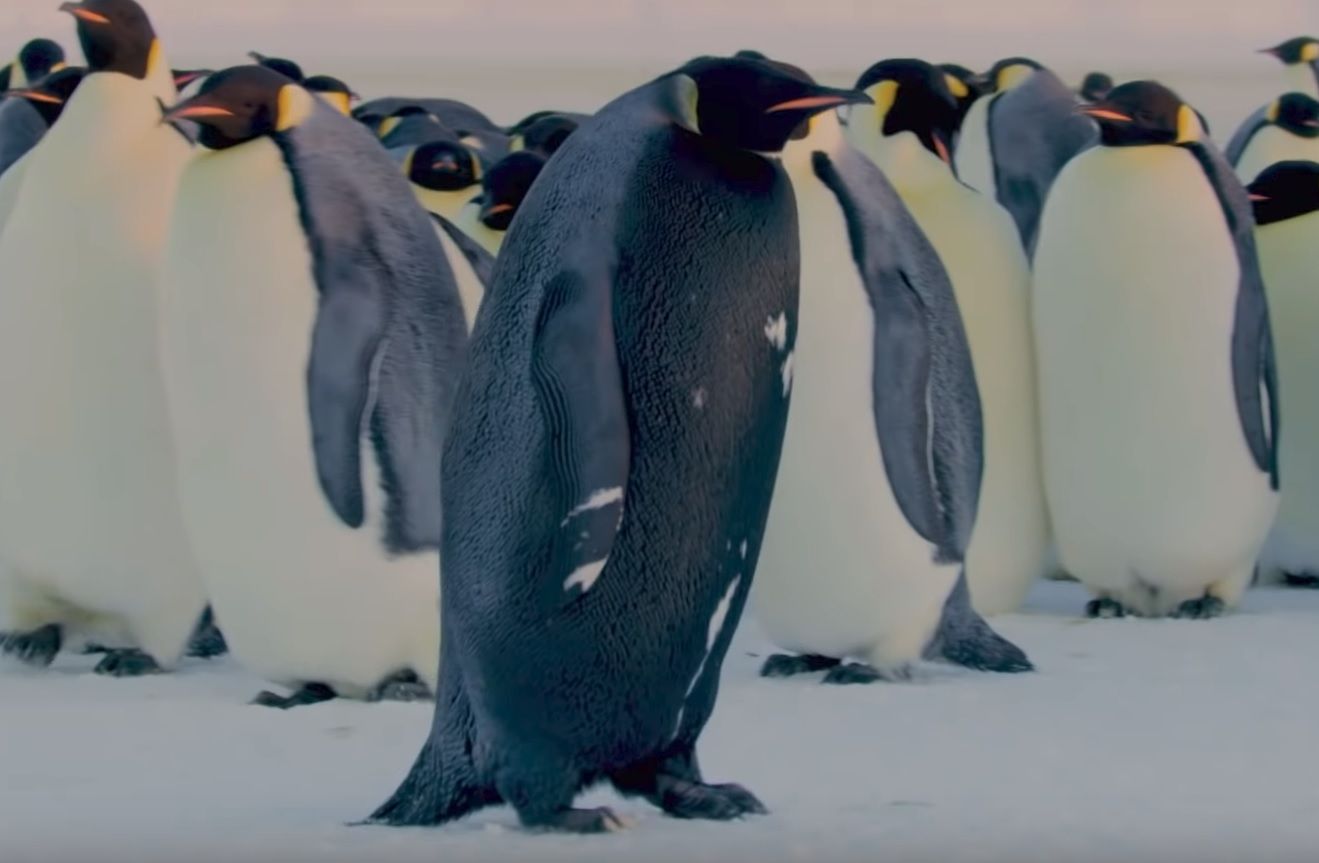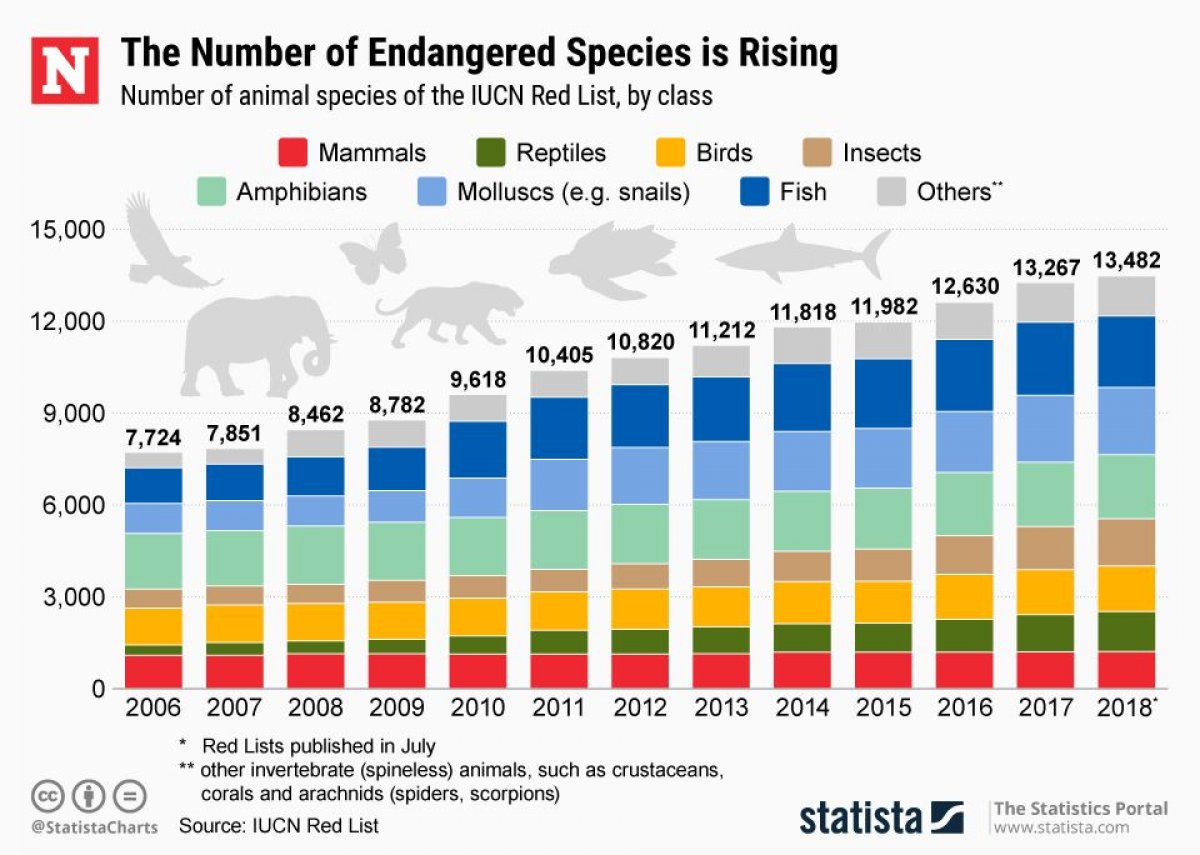
With its belly covered in black feathers rather than the usual white fluff, a penguin spotted in Antarctica could be the rarest of its kind on Earth, experts believe.
The black emperor penguin was spotted by researchers in Atka Bay, off the coast of Antarctica. The BBC shot what is thought to be the first-ever footage of a black emperor as part of its Dynasties series of wildlife programs.
The video clip, titled "The Rarest Penguin on Earth," shows the special creature standing out from the crowd as it waddles among its white-stomached crew.
Its distinctive plume is caused by a mutation called melanism, which has made its entire body turn almost totally black. A streak of orange on its beak, a splash of white on its flipper and a wave of yellow above its neck seem to be the only external colors on the bird's body. The mutation is highly rare in penguins, according to the BBC.
The contrast of the penguin's black body against the snow and the rest of its crew make it a target for predators, which could spot it more easily, the BBC said. It is unusual for such creatures to survive until adulthood, according to the broadcaster.
The episode of Dynasties in which the penguin appears follows a colony of emperor penguins in the ice port on the Ekström Ice Shelf on the coast of Queen Maud Land, as they return to land after spending three months gobbling up food at sea.
The birds were filmed when the water in the region had frozen over, which prompts the area's other inhabitants to head into the sea. This is thought to be a safer option for most creatures.
"The penguins have come here to raise the next generation in their emperor's dynasty. But to do so they will have to work together to keep themselves and their chicks alive through the coming winter—the coldest and cruelest on earth," the BBC synopsis of the show read.
In 2010, National Geographic reported a sighting of a rare melanistic penguin.
Ornithologist Allan Baker, a professor of environmental and evolutionary studies at the University of Toronto and head of the Royal Ontario Museum's Department of Natural History, told the magazine when he first saw the image his reaction was "Wow. That looks so bizarre I can't even believe it. Wow."
He explained: "It's a one in a zillion kind of mutation somewhere. The animal has lost control of its pigmentation patterns. Presumably, it's some kind of mutation."
The graphic below, provided by Statista, illustrates how the number of endangered species is on the rise.

This article was updated to include an infographic.
Uncommon Knowledge
Newsweek is committed to challenging conventional wisdom and finding connections in the search for common ground.
Newsweek is committed to challenging conventional wisdom and finding connections in the search for common ground.
About the writer
Kashmira Gander is Deputy Science Editor at Newsweek. Her interests include health, gender, LGBTQIA+ issues, human rights, subcultures, music, and lifestyle. Her ... Read more
To read how Newsweek uses AI as a newsroom tool, Click here.








